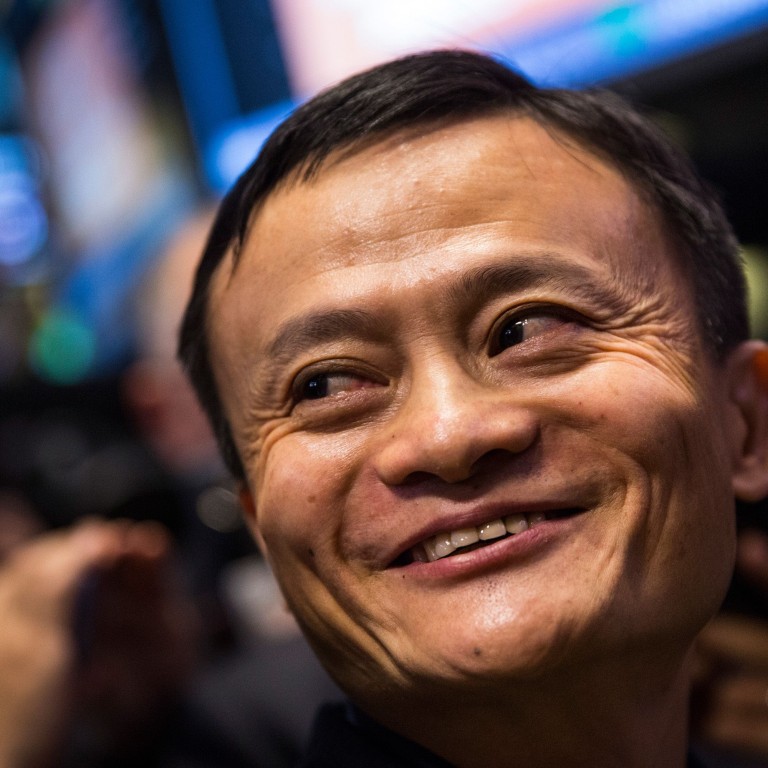
Jack Ma is rewriting the rules of capitalism
Donald Gasper says the HK stock exchange is right to rethink its ban on dual share classes - the governance structure chosen by Alibaba and other tech giants so they are not beholden to the demands of short-term investors
It's official: the initial public offering last week of Alibaba Group now ranks as the world's largest IPO, having raised US$25 billion. This came about after the company, now one of the biggest publicly traded technology firms in the world, agreed to sell an additional 48 million shares by exercising the so-called "green shoe" overallotment option.
This really marks a significant milestone, not just for Alibaba but for Chinese businesses in general and for e-commerce worldwide.
Unfortunately, due to its outdated listing rules, which exclude companies with dual-share structures, Hong Kong lost the opportunity to become the location of the IPO and runs the risk of being left behind as more internet-based companies seek to raise capital.
This is why, earlier this month, the carried an article that asked, pointedly, how many Alibabas is the Hong Kong exchange "prepared to lose for the sake of its one-share-one-vote principle"?
Fortunately, as it noted, the HKEx has quietly published a paper looking at the argument that it should update its archaic listing rules.
It might be a case of closing the stable door after the horse has bolted, but such a willingness to face reality deserves to be saluted.
Financial Services Development Council chairwoman Laura Cha Shih May-lung has said that the exchange should allow the "dual class structure", so long as investors are fully aware of the risks. Otherwise, if Hong Kong buries its head in the sand and refuses to make changes, the SAR may be marginalised, Cha fears.
Well said. It is high time that the stock exchange recognised the old Latin adage of caveat emptor (buyer beware) instead of acting as an overprotective nanny towards investors. If it changed the rules to permit the dual class structure, it would simply be following in the footsteps of the New York Stock Exchange, which in the 1980s lifted its 60-year ban on such structures.
During Alibaba's roadshow, company executive chairman and co-founder Jack Ma Yun said that it had the opportunity "to create a new business paradigm in China". What did he mean?
Former Alibaba vice-president Porter Erisman explained recently that the company's corporate governance structure was adopted to help it avoid repeating the mistakes of other companies. "The reason we were so determined to do this was because we had watched a number of our competitors follow Wall Street expectations right off a cliff," he told China Spectator.
Most of the business-to-business sites that emerged in the early 1990s went bankrupt because they were trying to please investors rather than customers.
Alibaba was able to defeat eBay as a rival in the e-commerce space because, unlike the US company, it was not beholden to investor demands. It was because Wall Street investors put pressure on eBay to generate revenue in the short term that the company could not keep its website free. In the Chinese context, this was suicidal, and it was a major factor leading to eBay's withdrawal from the China market.
Some critics claim Alibaba's structure with two classes of shares is designed to protect the management from investors. "The way I think they should see it is that they're trying to protect the long-term investors from the short-term investors and the day traders," says Erisman.
Critics also noted that Ma hived off the company's online payment system Alipay. What they ignore is that he had no choice, as Chinese law precludes foreign ownership of payment systems.
Some critics have tried to make a big deal of the fact that Alibaba shareholders include some individuals with links to the ruling Communist Party. They are a minority.
Although it enjoys the respect of the government, Alibaba is a quintessentially private company. Apart from Ma and his colleague Joe Tsai, the major shareholders are Japan's Softbank and US internet company Yahoo. The IPO has now enabled thousands of small investors to buy into the e-commerce giant's success story.
Ma has long insisted that the company's guiding principle is to put the customer first, employees second and shareholders third. This formula has worked so far and, with the IPO, it is clear that investors have bought it.
This may be rewriting the rules of capitalism, but so be it.

